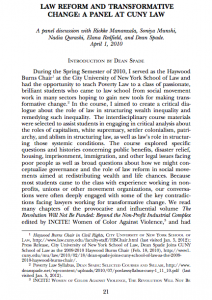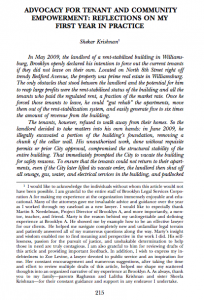Editor’s Note: The following excerpt contains Dean Spade’s introduction to a panel discussion with Rickke Mananzala, Soniya Munshi, Nadia Qurashi, Elana Redfield, and Dean Spade. April 1, 2010. Dean Spade served as the Haywood Burns Chair at the City University of New York School of Law for 2010, and recently published the book Normal Life: Administrative Violence, Critical Trans Politics and the Limits of the Law (2012). Click here for the full transcript.
During the Spring Semester of 2010, I served as the Haywood Burns Chair [FN 1] at the City University of New York School of Law and had the opportunity to teach Poverty Law to a class of passionate, brilliant students who came to law school from social movement work in many sectors hoping to gain new tools for making transformative change. [FN 2] In the course, I aimed to create a critical dialogue about the role of law in structuring wealth inequality and remedying such inequality. The interdisciplinary course materials were selected to assist students in engaging in critical analysis about the roles of capitalism, white supremacy, settler colonialism, patriarchy, and ablism in structuring law, as well as law’s role in structuring those systemic conditions. Continue reading


